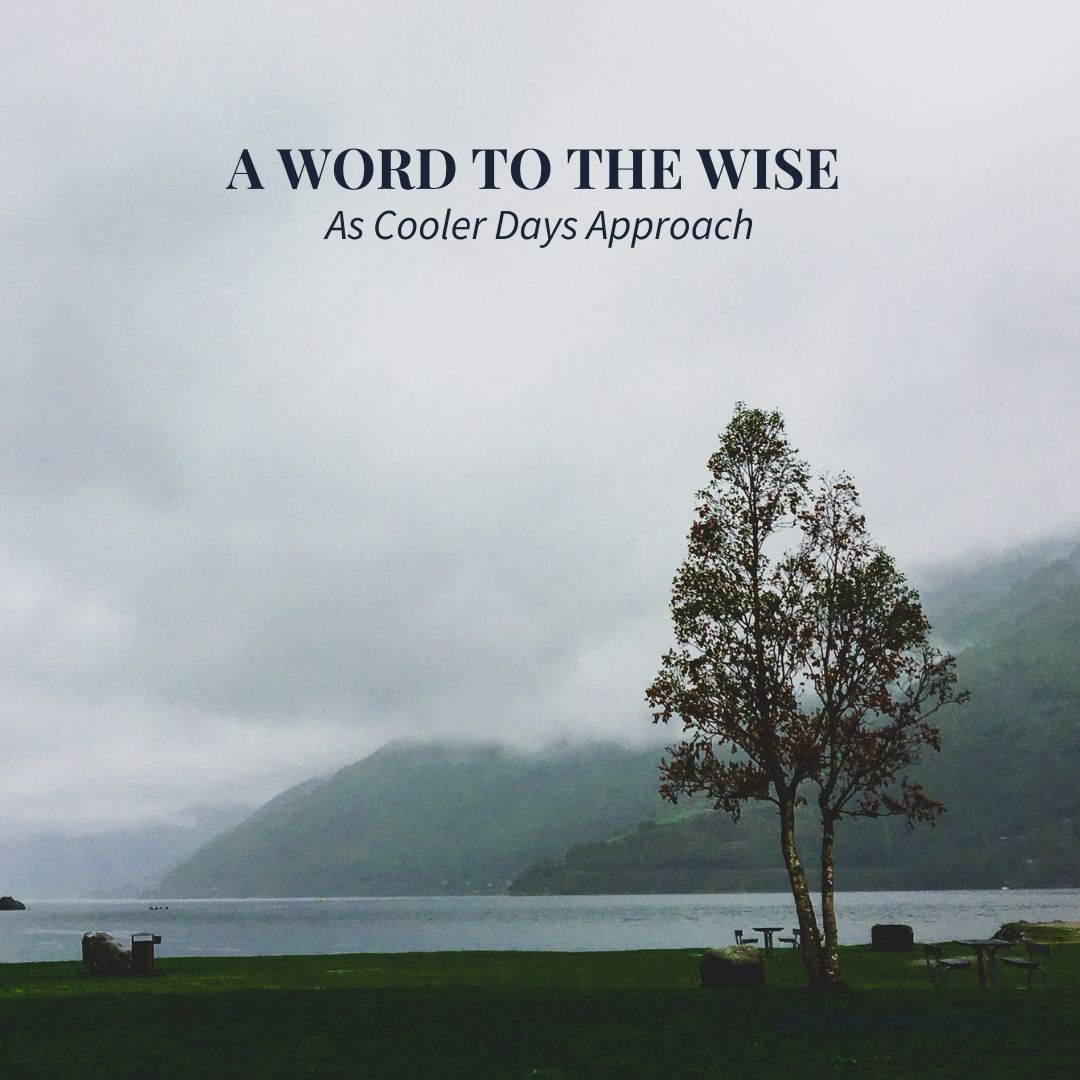 As the season changes you may notice a difference in your mood, your energy, and even your outlook on life. You may wonder why it’s harder to get out of bed in the morning, why it’s a struggle to be patient with your loved ones, or why you are beginning to rely on that second (or fifth) cup of coffee to make it through your day!
As the season changes you may notice a difference in your mood, your energy, and even your outlook on life. You may wonder why it’s harder to get out of bed in the morning, why it’s a struggle to be patient with your loved ones, or why you are beginning to rely on that second (or fifth) cup of coffee to make it through your day!
While there are many factors that impact these changes, lack of sun exposure throughout the winter months may be one of them. One of the main reasons that sunlight affects your well-being so much is the direct impact sunlight has on your Vitamin D levels. Let’s take a look at how this happens and the impact it has on the body!
Sun Exposure & Vitamin D
When your skin is exposed to sunlight, it causes your body to synthesize cholesterol into Vitamin D. It takes time for your system to create and absorb adequate levels of Vitamin D.
Generally speaking a large amount of your skin must be exposed to the sun for at least 30 minutes each day for you to create optimal levels of Vitamin D. During the cooler months it is especially difficult to receive enough sun exposure for this to occur.
While your diet can contribute to your level of Vitamin D, we were genetically designed to receive our Vitamin D from exposure to the sun. If you live in the Midwest you are likely not getting enough sunlight to produce optimal levels of Vitamin D, especially during the cooler months.
What it Means for You
Nearly all the cells in our bodies have Vitamin D receptors, so our bodies can not function properly when we are deficient.
Read more ...
 When it comes to making significant changes, less is often more! Let’s look at what research is showing us about creating new habits, as well as learn a little trick that will actually help you rewire your brain.
When it comes to making significant changes, less is often more! Let’s look at what research is showing us about creating new habits, as well as learn a little trick that will actually help you rewire your brain.
Teensy-Tiny Habits
Oftentimes we fail at these changes because we bite off more than we can chew and then feel bad about our progress (and ourselves). By doing these two things we prove that we don’t really understand how successful lasting change is made.
If you really want to make a big impact in your life, start with a teensy-tiny goal. According to behavior scientist, researcher, and author Dr. BJ Fogg this is the best way to make change. In his book, “Tiny Habits,” he encourages you to make your habit ridiculously easy to do.
So, if you want to start reading more, don’t decide to read for 30 minutes every night before bed, simply decide to open a book everyday. Do you need to floss your teeth more? Make your goal as easy as flossing one tooth each night.
I know what you are probably thinking, it’s silly to aim for that when I need a more drastic change. You are right, these little changes by themselves won’t accomplish what you want to achieve. But they will start you on the path towards the change you desire.
Seamlessly Fitting Them In
Once you pick a ridiculously easy habit to work on, choose exactly when you will do this easy action. Think through your day to find a place where this new habit will fit naturally. Then, couple this new habit with something you already do each day.
Read more ...
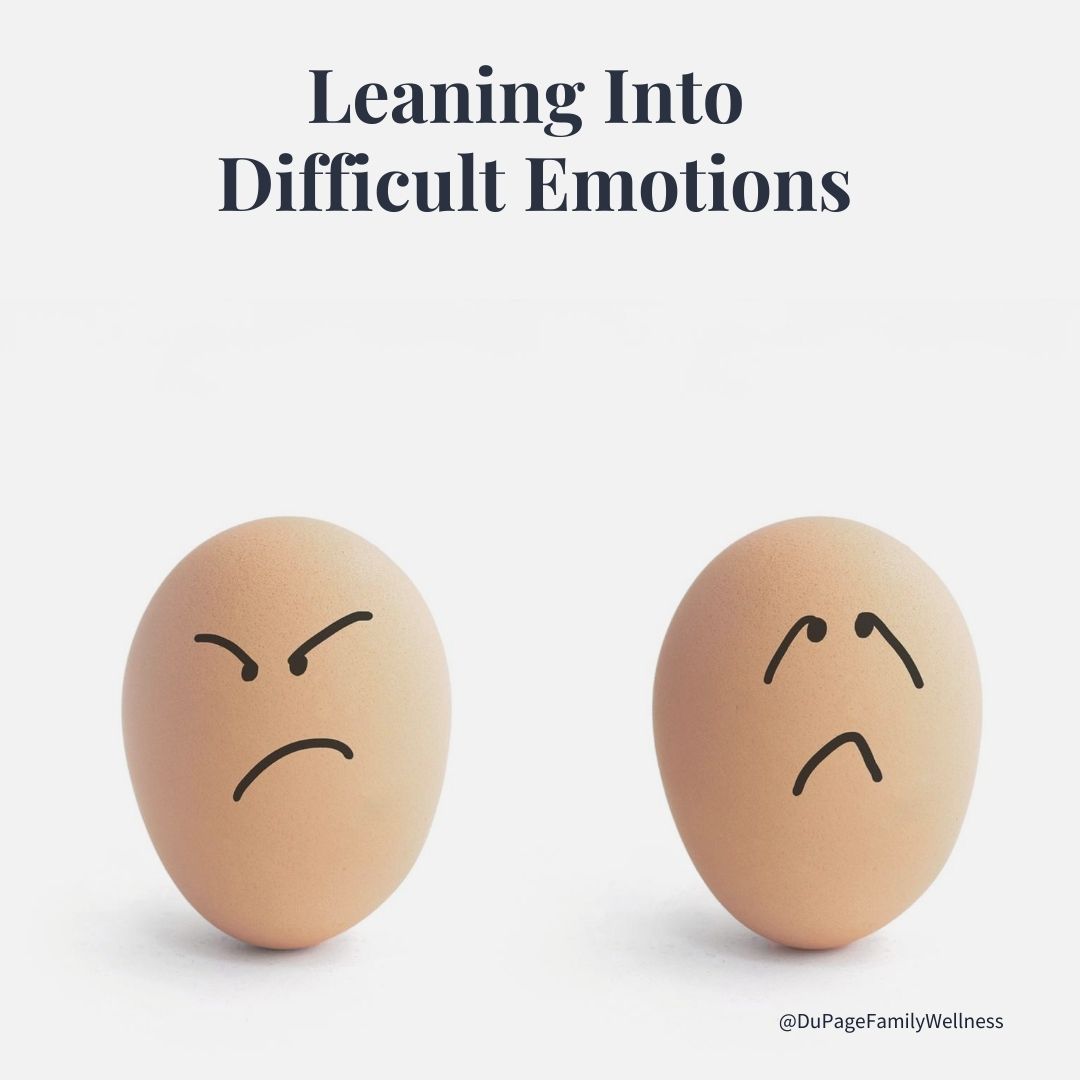
Our world has been in a state of chaos for much of this year and many people are feeling an intense emotional load as a result. What started as a two week shelter in place order has led to months of isolation. Work, school, and social connections have all been disrupted without a clear end in sight.
At first, many people tried to view this as an opportunity for growth - a time to consider what really mattered and focus on that. Some people spent more time with their families, some sewed masks or ran errands for those who couldn’t, while others worked on home projects or took time to declutter.
But as time has worn on, many people are feeling the emotional impact of the situation weighing heavily upon them. With all these difficult things to process, it is a great time to consider how we handle these difficult emotions and if we are dealing with them in a healthy way!
Difficult Emotions NOT Welcome
As a child many people are given the message that their difficult emotions are not acceptable. It may be that their parents didn’t recognize the child’s emotions. They were simply told to “look on the bright side” or “be grateful” for what they had. Some parents were so disconnected from their own emotions, that they couldn’t provide a healthy role model on how to handle intense feelings. Still other children were outright ridiculed for showing “negative” emotions, even being told “stop crying or I’ll give you something to cry about.”
These techniques are often used as an attempt to shut down the child’s emotion when it is uncomfortable for the adult. Even well meaning parents may use them as ways to distract children from dealing with the difficult emotions when the emotion feels too big to handle. But having a parent gently accept and guide their child through these big emotions, is an important step in teaching the child to regulate their own emotions.
Without the ability to self regulate, people are often left either flooded by their emotions or trying to push the difficult emotions away in an attempt to disconnect from them. Being flooded by intense emotions can be really overwhelming, but pushing them away is damaging as well. When we “put on a happy face” before allowing ourselves to experience our emotions, we miss out on the valuable information those emotions are giving us.
Read more ...
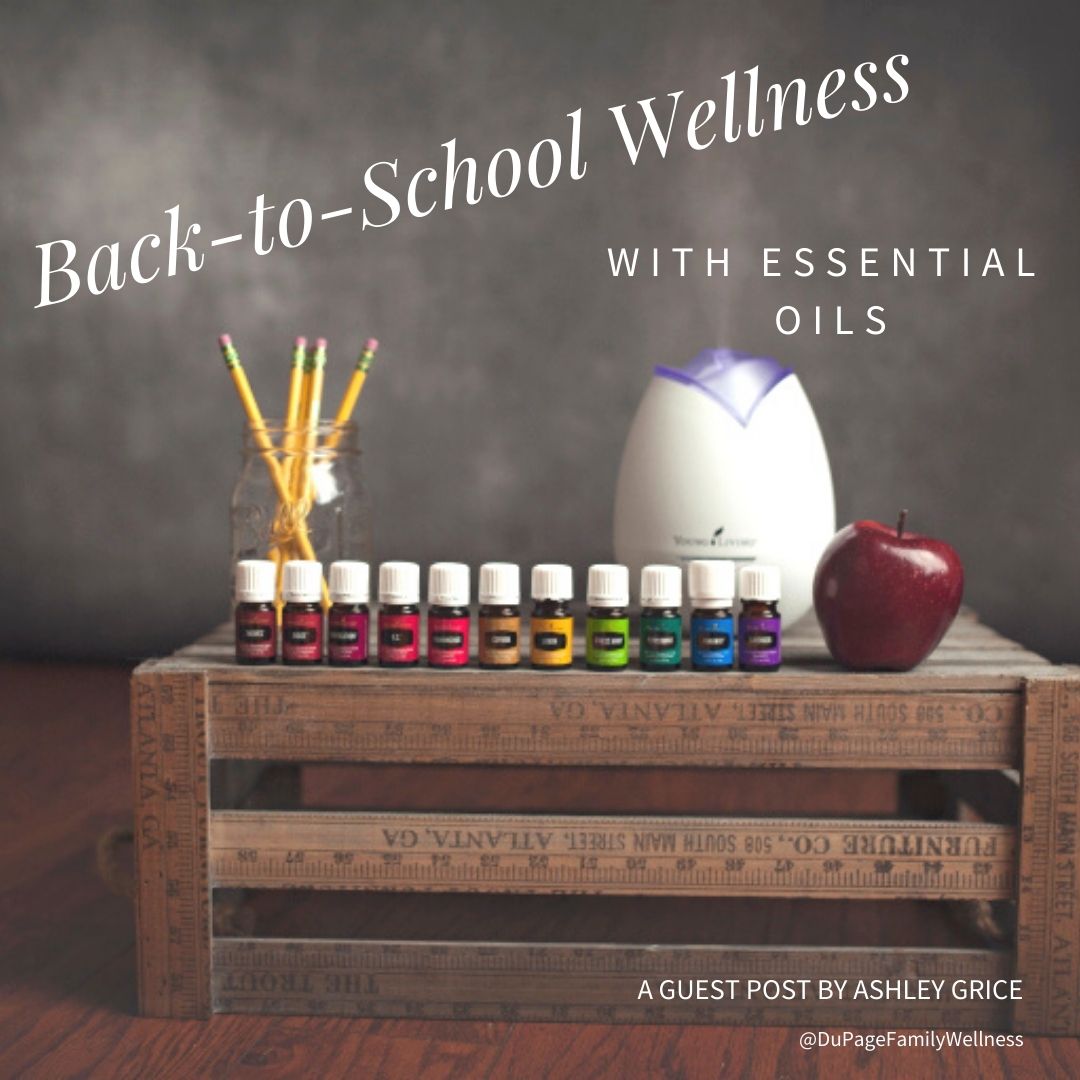
Essential oils are really popular right now, but getting started with them can be overwhelming. It is helpful to have a guide that can teach you how to use them safely and effectively.
In the past couple months I have started to learn more about them. It's been great to have the guidance of Young Living distributor Ashley Grice.
She is a fantastic resource, and we are excited to share this guest blog written by her...
Back-to-School Wellness with Essential Oils
August always brings with it a sense of anticipation and excitement, but there’s nothing quite like the anticipation (and maybe even anxious-laden uncertainty) that we’re being met with this Back-to-School season. Whether your little ones are heading back for in-person education in the classroom, exploring e-learning options from home, or you’re homeschooling for the first (or fifteenth!) time, protecting the physical and emotional well-being of our Littles is at the forefront of our minds.
While we are faced with lots of different choices and decisions as parents, the good news is that keeping them supported and healthy as they embark on -what will likely feel like- a new adventure this year doesn’t have to be overwhelming or difficult.
Young Living Essential Oils has been supporting families on their wellness journeys for over 25 years, and the following are some of my family’s favorite essential oil singles, oil blends, and oil-infused products that have allowed us to experience exceptional health outcomes.
First, all things THIEVES!
Even if you’ve never used essential oils before, you’ve likely heard about this incredible oil blend and its use for overall wellness and immune system support. And those who have used it before know exactly why this is the first essential oil I’d never want to be without!
Young Living’s Thieves oil blend was inspired by the 15th century legend of French thieves who formulated a combination of aromatic herbs and oils that was highly effective in supporting their bodies amidst the bubonic plague that had been ravaging Europe during that time.
Read more ...
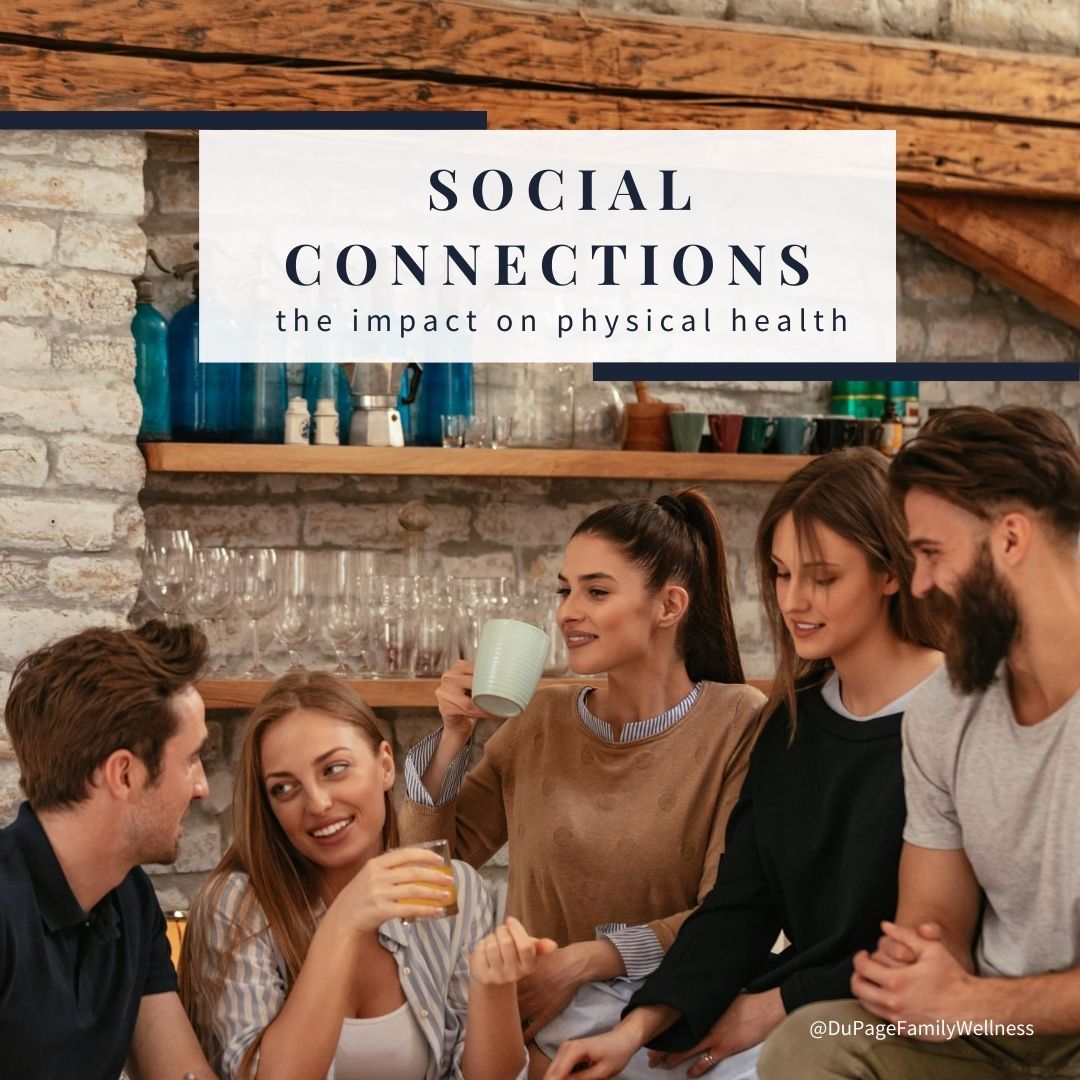 There are many things people know they must do if they want to be healthy: eat well, get adequate movement, refrain from smoking, and limit alcohol. But now we can add “enjoying social connections” to our list of healthy habits!
There are many things people know they must do if they want to be healthy: eat well, get adequate movement, refrain from smoking, and limit alcohol. But now we can add “enjoying social connections” to our list of healthy habits!
Social Connections Impact on Physical Health
Research is showing that social connections have a major impact on both our mental and physical health. It is not hard to believe that those who feel more connected with others tend to struggle less with anxiety and depression. They also have higher self esteem, greater levels of empathy, trust others more, and tend to be more cooperative.
While the impact of social connections on emotional wellbeing may be expected, the extensive impact on physical health may come as a surprise to many. According to Dr. Emma Seppala, the American Association for the Advancement of Science published a study that found that “a lack of social connection is a greater detriment to health than obesity, smoking and high blood pressure.”
A lack of social connections has been linked to obesity levels, inflammation, and hypertension. It may be shocking, but strong social connections actually improve your immune system and lead to a 50% increased chance of longevity. More research is needed to discover why social connections have such a dramatic impact on health, but the research is clear that social connections are extremely important if you want to live a long and healthy life.
Insights From the Research
- Research shows that the quantity of relationships is important both with teens and the elderly, while the quality of relationships matters more in midlife.
- It is also important to realize that you don't need to be physically with someone to have a social connection. If you feel seen, heard, and understood, that is enough to feel connected to others.
- Recognize that it is possible to feel isolated and alone, even if you are surrounded by people.
- Don’t underestimate the importance of feeling connected to yourself.
How to Cultivate Connection
In this season, with Covid-19 and the social distancing mandates, it is more important than ever to find ways to cultivate social connections. You may have to be creative, but your health is worth the effort.
Read more ...
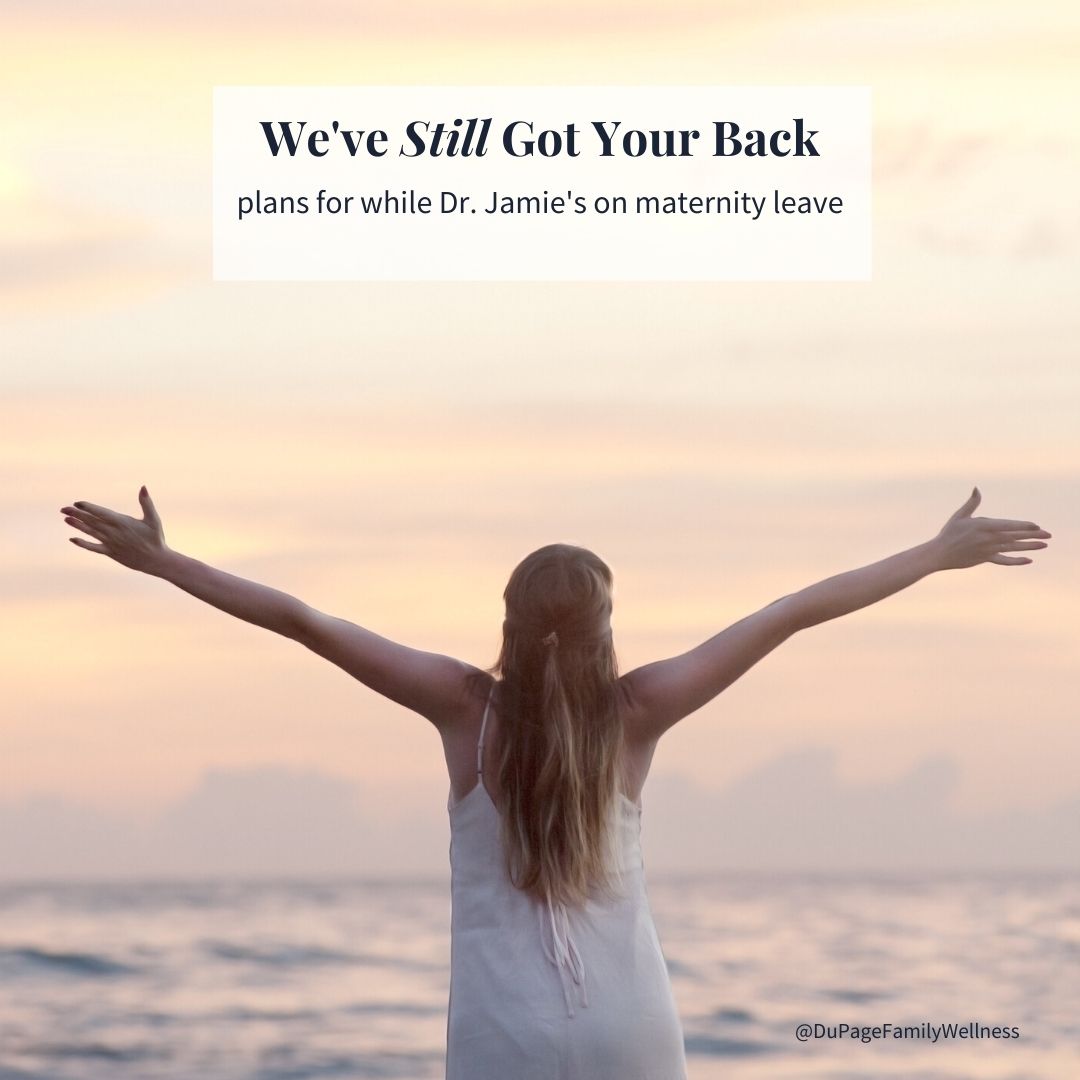 While Dr. Jamie is welcoming her new baby into the world, she still has your back!
While Dr. Jamie is welcoming her new baby into the world, she still has your back!
Dr. Jamie has arranged for three chiropractors that she trusts to care for her patients. Please reach out to any of these wonderful practitioners directly to schedule an appointment in one of their offices.
Dr. Jessica Leighton
Alliance Chiropractic & Acupuncture in Naperville 630-995-3189
Dr. Jessica Leighton (Flynn) graduated from National University of Health Sciences and Albion College after an internship at the Salvation Army in Chicago. While there she developed a passion for helping women during pregnancy and the postpartum phase.
Her clinic in Naperville is dedicated to women’s health and wellness, prenatal and postpartum care, as well as family chiropractic care. Acupuncture services complement her practice, and can specifically target enhancing natural fertility.
She supports both men and women, who are trying to conceive naturally and those navigating various fertility treatments. Her own fertility struggles enable her to understand the physical and emotional component to many fertility challenges.
Dr. Anita Dickerson
41 North Chiropractic & Soft Tissue Clinic in St. Charles 630-549-7870
Dr. Anita Dickerson graduated with a doctorate in chiropractic medicine from Western States Chiropractic College in Portland, Oregon.
She has devoted her career to treating patients with the Active Release Technique (ART), because she finds it to be the best technique for soft tissue issues. Her patients also receive gentle chiropractic adjustments, as well as guidance in balancing muscles.
Dr. Anita understands that balancing muscles involves more than simply identifying muscles that are either tight or weak. She realizes that it’s critical to determine why specific muscles are affected before starting to stretch or strengthen them.
She recognizes that exercises can be ineffective and counterproductive when applied too early. Once underlying problems have been corrected, she guides patients through specific exercises designed to stretch and strengthen muscles sequentially - making sure each muscle is capable of doing what it is intended to do.
Read more ...
 As the season changes you may notice a difference in your mood, your energy, and even your outlook on life. You may wonder why it’s harder to get out of bed in the morning, why it’s a struggle to be patient with your loved ones, or why you are beginning to rely on that second (or fifth) cup of coffee to make it through your day!
As the season changes you may notice a difference in your mood, your energy, and even your outlook on life. You may wonder why it’s harder to get out of bed in the morning, why it’s a struggle to be patient with your loved ones, or why you are beginning to rely on that second (or fifth) cup of coffee to make it through your day!

 When it comes to making significant changes, less is often more! Let’s look at what research is showing us about creating new habits, as well as learn a little trick that will actually help you rewire your brain.
When it comes to making significant changes, less is often more! Let’s look at what research is showing us about creating new habits, as well as learn a little trick that will actually help you rewire your brain.

 There are many things people know they must do if they want to be healthy: eat well, get adequate movement, refrain from smoking, and limit alcohol. But now we can add “enjoying social connections” to our list of healthy habits!
There are many things people know they must do if they want to be healthy: eat well, get adequate movement, refrain from smoking, and limit alcohol. But now we can add “enjoying social connections” to our list of healthy habits! While Dr. Jamie is welcoming her new baby into the world, she still has your back!
While Dr. Jamie is welcoming her new baby into the world, she still has your back!